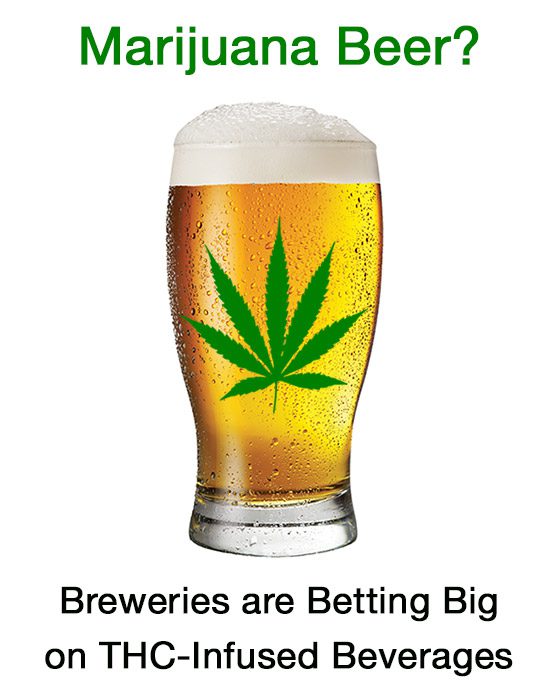The sale and use of recreational marijuana in the United States, as of 2018, is legal in 10 states and the District of Columbia (DC). In total, 33 states allow for legal consumption – medicinal or recreational marijuana – in some regulated form or fashion.
Despite the federal government’s Schedule I classification of the leafy substance, the weed industry is growing…well, yeah, like a weed.

California-based Lagunitas Brewing Company, owned by Heineken, is one of the first on the market with a non-alcoholic pot-brew called Hi-Fi Hops – AbsoluteXtracts.
Hi-Fi Hops, which some reviewers describe as hoppy-tasting sparkling water, comes in two doses:
- One is made solely with 10mg of THC, the psychoactive ingredient in marijuana
- The second is a combination of 5mg THC and 5mg CBD (cannabidiol) for a more relaxed, less “high” experience
The brew is currently available in select California dispensaries and retails for around $8. Heineken isn’t the only company jumping into the marijuana business.
How Big is the Cannabis Market?
According to Forbes, the U.S. accounted for 90 percent of the $9.5 billion worldwide cannabis market in 2017. Big-name beverage companies, like Molson Coors, are investing in cannabis products.
Even Coca-Cola announced an interest in CBD-infused beverages after the 2018 Farm Bill removed hemp from the controlled substances list.
For “pot-preneurs,” the future seems bright, but healthcare experts grumble about the disparity between marijuana availability and the lack of research into its long-term effects on users.
Because the government maintains pot as a Schedule I Narcotic, a substance with little to no medicinal use and a high likelihood for abuse, very few well-funded studies on marijuana have been done.
Researchers at Harvard’s T.H. Chan School of Public Health examined more than 10,000 marijuana studies. Their conclusion was that no clear guidelines on populations that might benefit or be harmed by different cannabis doses and “delivery mechanisms” exist with the available data.
“What is the right public health message to send to adults who can now legally buy and use marijuana?” the L.A. Times Editorial Board wrote just after the end of marijuana prohibition in California.
Negative Consequences of Marijuana Legalization
There is evidence that suggests legalizing pot in one form or another has some negative consequences, such as several of the following:
- Among eighth and 10th graders in Washington, marijuana use increased after legalization, according to the National Institutes of Health, though this did not occur among Colorado teens
- Some states are seeing an increase in drivers who are under the influence of marijuana
- Pot potency, the amount of THC in it, has increased from an average of 3.7 percent in the ’90s to as high as 50 to 88 percent in newer products, which affects people in vastly different ways.
Responsible Marijuana Marketing
Clearly, some populations are more vulnerable as it relates to easily accessible cannabis.
For instance, corporations that advertise new pot products should – like tobacco companies are required – avoid marketing to minors.
People struggling with or in recovery from drug and alcohol addiction are another demographic that will no doubt, need to find ways to avoid triggers that lead to a marijuana misuse relapse.
Educational campaigns should aim to explain how much THC is in each edible product and how it can affect the user. Even people who smoke marijuana regularly don’t have the same tolerance to edibles, and eating too much THC can have scary consequences, even though it won’t cause a fatal overdose.
It seems unlikely that companies like Heineken or Molson Coors or any other beverage juggernauts getting into the marijuana game are going to slow down the production of pot-infused products.
In a $10 billion-plus market, creating awareness campaigns that reduce the stigma around addiction and create greater awareness about the treatment would be a helpful way to spend just a small portion of their profits.
Perhaps if the federal government ever comes around to legalizing recreational marijuana on a national level, it can mandate that corporations must do more than just try to promote their products responsibly.
Related:
Is it Safe to Breast Feed While Using Marijuana?
11 Side Effects of Using Marijuana
Drugged Driving Fatalities Surpass DUI Deaths for the First Time





